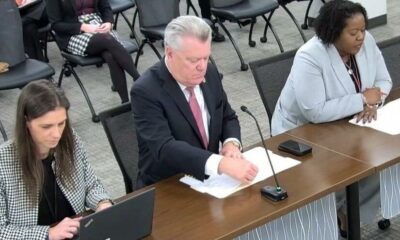(The Center Square) – Texas is leading a 19-state coalition challenging a federal agency requiring states to implement a “green energy” transition.
The states filed a complaint with the Federal Energy Regulatory Commission (FERC) in response to a rule it passed to advance unprecedented federal control over the U.S. electric grid. Currently, state regulatory bodies determine the most efficient mix of energy sources for their states. FERC’s new rule appears to be an unfunded mandate, requiring states to implement “green energy” electricity generation and cover the costs to transition to it.
Texas, which maintains its own electric grid, filed the complaint, leading a 19-state coalition. It argues FERC’s rule exceeds its authority, is arbitrary and capricious and creates an “unjust, unreasonable, and/or unduly discriminatory rates” that violate the Federal Power Act.
The rule is “not supported by reasoned decision-making or explanation and runs counter to the evidence,” the 48-page brief states. FERC issued the rule “attempting to do indirectly what it cannot do directly: usurp the States’ exclusive authority over generation choices by adopting planning rules designed to benefit remote renewable generation and renewable developers, and shift billions or trillions of dollars in transmission costs from those developers onto electric consumers,” the coalition argues.
The coalition includes Texas, Alabama, Arkansas, Florida, Georgia, Idaho, Iowa, Kansas, Kentucky, Louisiana, Mississippi, Montana, Nebraska, North Dakota, Oklahoma, South Carolina, South Dakota, Tennessee and Utah.
At issue is the FERC’s May 13, 2024, Order No. 1920, which states, “there is substantial evidence to support the conclusion that the existing regional transmission planning and cost allocation processes are unjust, unreasonable, and unduly discriminatory or preferential because the Commission’s existing transmission planning and cost allocation requirements do not require transmission providers to: (1) perform a sufficiently long-term assessment of transmission needs that identifies Long-Term Transmission Needs; (2) adequately account on a forward looking basis for known determinants of Long-Term Transmission Needs; and (3) consider the broader set of benefits of regional transmission facilities planned to meet those Long-Term Transmission Needs.”
The order requires states to cover the costs of transitioning regional transmission lines to support “green energy” generation even when doing so doesn’t support the state’s energy needs and would decrease grid efficiency and reliability, the coalition argues.
In Texas, for example, the regulatory body overseeing the state’s grid, the Electric Reliability Council of Texas (ERCOT), has repeatedly pointed out that wind and solar power cannot meet energy demands but natural gas does. As temperatures hovered for months at 120 degrees last year, ERCOT issued voluntary conservation appeals while also publishing data showing that low wind generation could not provide a sufficient energy supply. Texas is the world’s fifth largest generator of wind power and leads the U.S. in generating wind energy.
Recognizing the need for reliable non-intermittent energy sources, the Texas legislature, and the majority of voters, approved a plan to invest $5 billion in constructing mostly natural gas infrastructure to expand Texas’ energy grid reliability. The new program has received an “overwhelming response,” state officials said. By contrast, zero bids were received in Texas in response to federal offshore auctions for roughly 200,000 acres of wind energy leases in the Gulf of Mexico. Despite this, the Biden administration is again attempting to auction a second round of offshore wind leases in the Gulf.
The Texas General Land Office has opposed such efforts, refusing to grant any easement to access state-owned submerged land for transmission lines to shore, arguing it’s not in Texas’ best interest. GLO Commissioner Dawn Buckingham said, “The Biden Administration appears hellbent on force-feeding Americans failed ‘green’ policies” and she will “never allow the federal government to endanger the people of Texas and our state’s beautiful wildlife with untested, unproven, and ineffective technology when reliable, clean, and safe energy is already available,” referring to Texas-produced natural gas.
Texas leads the U.S. in natural gas production and Texas and Louisiana lead the U.S. in liquified natural gas exports, The Center Square has reported.
The 19-state coalition argues, “FERC has never been granted the authority to revamp the structure of state energy grids or force states and their ratepayers to subsidize large-scale transmission lines that don’t transport enough energy to justify the cost. This encroachment upon state authority far exceeds FERC’s limited purview and damages the ability of states to regulate their electric grids efficiently, all in the name of advancing costly climate goals.”
Texas Attorney General Ken Paxton said the president’s “attempt to seize unprecedented control over energy production and distribution is a recipe for disaster.” The AGs joined together “to stop his unlawful ‘energy transition’ scheme that would drive up energy costs and reduce reliability of the resources our nation needs most to flourish.”
They did so after the former Louisiana attorney general and now governor, Jeff Landry, led a gubernatorial coalition to “unleash domestic energy production.”
“American energy has done more than any other industry to lift more people out of poverty globally than any other industry that I’ve known of,” Landry said.











































